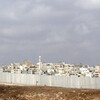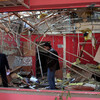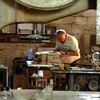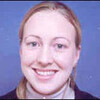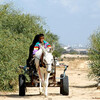
Creation of "Death Zone" in northern Gaza Strip is illegal
2 January 2006
In response to the Qassam rockets fired from the northern Gaza Strip at Israeli communities and army bases in Israel , the army announced it was beginning Operation Blue Skies. As part of the operation, the army called on Palestinians living or present in the area to leave by 6:00 P.M. Wednesday. According to media reports, the army intends to open fire at any person who enters the area, regardless of the person’s identity or reason for being there. An order to open fire at any person present in a particular area in the northern Gaza Strip, would constitute a flagrant breach of International Humanitarian Law. Indiscriminate gunfire at every person who enters a particular area is patently illegal, and can lead to the commission of war crimes. Read more about Creation of "Death Zone" in northern Gaza Strip is illegal
